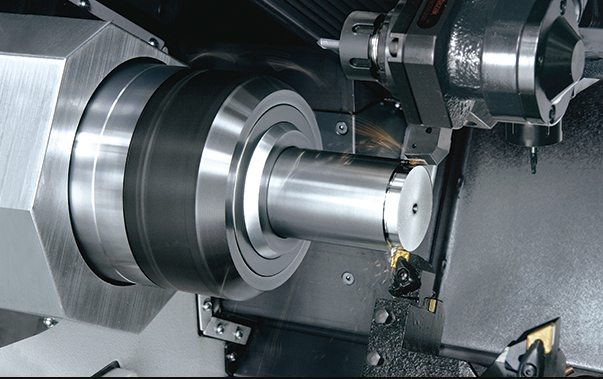Email tɛ se ka kɛ lankolon ye
Password tɛ se ka kɛ lankolon ye
Email cogoya fili
Email tɛ se ka kɛ lankolon ye
Email bɛ yen kaban
6-20 sɛbɛnni(sɛbɛnniw fara jatedenw dɔrɔn kan)
Daɲɛ dogolen tɛ bɛn ɲɔgɔn ma
Email cogoya fili
Email tɛ se ka kɛ lankolon ye
Email tɛ yen
6-20 sɛbɛnni(sɛbɛnniw fara jatedenw dɔrɔn kan)
Daɲɛ dogolen tɛ bɛn ɲɔgɔn ma

Kunnafoniw
Common CNC machining methods You Should Know
Turning is a machining method in which a workpiece is rotationally machined using a cutting edge with a specific geometry.
Usually, the workpiece rotates, and the tool with a single cutting edge moves along the machined surface. Compared with boring and milling, turning is the most common machining method in modern machining methods. Today, turning problems are limited almost exclusively to chip formation and machining costs.
Both chip flow and chip breaking in turning are controlled, which means not only that the material being removed is removed from the machining area, but the chips must break in a controlled manner that removes as much cutting heat as possible from the cutting process .

What is Milling?
Milling is also a machining method that removes metal in stages by motion. The tool rotates and usually the workpiece is fed linearly against the tool. In some cases, the workpiece remains stationary while the rotating tool feeds laterally in a straight line.
The milling cutter has several cutting edges that can continuously remove a certain amount of material. Two or more cutting edges cut into the material at the same time, so that the tool cuts the material to a certain depth on the workpiece. Roughing Roughing is marked by the amount of chips removed, using large feeds and as large a depth of cut as possible during roughing, so as to remove as many chips as possible in a shorter time.
Roughing does not have high requirements on the surface quality of the workpiece. Finishing The main consideration in finishing is the surface quality of the workpiece rather than the chip volume. Finishing usually uses a small depth of cut, and the secondary edge of the tool has a special shape. Depending on the machine tool used, the cutting method, the material and the standard milling cutter used, a surface quality of Ra1,6µm can even be achieved under excellent conditions.
Types of milling
Face milling
Definition: Machining plane. Face milling is the most common type of milling used to mill a plane parallel to the face of the tool. Milling cutters are often mounted on the spindle. Face milling can be accomplished using both a tool with a certain diameter so that the workpiece can be machined in one stroke, and a milling cutter with a diameter that requires several strokes to complete the workpiece.
End milling
Definition: Machining a stepped face of approximately 90°. This type of milling is somewhat similar to face milling, but the angle of the circumferential cutting edge plays a decisive role. This tool can only be used if a part of the workpiece to be machined is a 90° shoulder. The sides of the tool (the entering angle) are parallel to the axis of rotation. This milling, in turn, is often referred to as step milling, shoulder milling or end milling.
With the improvement of 3D printing technology, will traditional processing industries such as CNC lathes and milling machines be eliminated?
The finish accuracy of 3D-printed products processed by machine tools at the same price is far from that of those processed by milling machines. The strength of 3D-printed products cannot be comparable to that of a whole piece of metal, so it is still early for 3D printing to replace milling machines and lathes. very.
Conclusion
For more information about milling cutter cnc,new cnc milling machine for sale,cnc copy milling machine, we are glad to answer for you.

